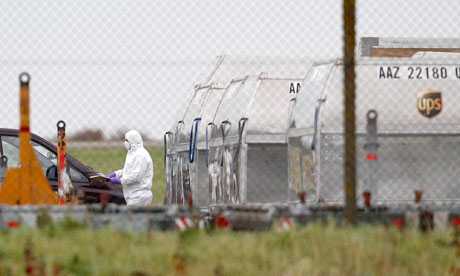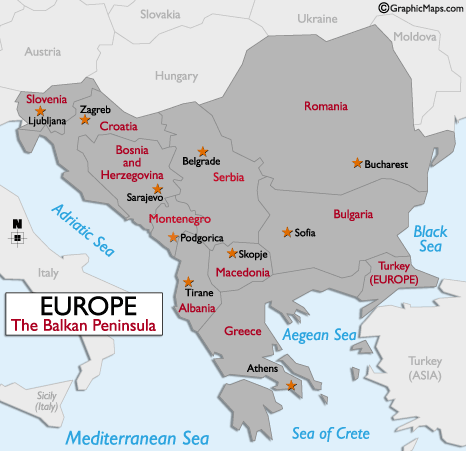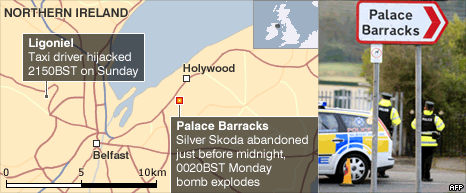A viable bomb placed under a serving police officer’s car in Belfast was a murder attempt by dissident republican paramilitaries, the police have said.
The unexploded device was discovered on the Upper Newtownards Road at about 14:00 GMT on Sunday.
Army bomb disposal officers have been called to deal with the device and have carried out a controlled explosion.
The Police Service of Northern Ireland (PSNI) said the bomb was “clearly intended to kill the police officer”.
Evacuated
In a statement, PSNI Assistant Chief Constable George Hamilton said: “It is very fortunate that this device was detected before it exploded and that no one was killed or seriously injured.
“Initial investigations would indicate that this was a viable device placed below an officer’s car sometime in the last 48 hours.”
ACC Hamilton added that the officer’s family and neighbours “were also put at risk of serious harm”.
A number of houses in the area have been evacuated. The nearby Stormont Presbyterian Church has been opened for residents forced to leave their homes.
The Upper Newtownards Road has been closed to traffic between the Knock Road junction and Cabin Hill Park.
ACC Hamilton added: “Our belief is that this attempted murder was carried by those opposed to peace from within dissident republicanism.
“They don’t care who they attack, they don’t care who they kill. They are simply anti-peace and determined to carry on bringing pain and devastation to families and communities by maiming and killing.”
Booby-trap
In recent years, dissident republican paramilitary groups have carried out a number of attacks on PSNI officers.
In April 2011, Constable Ronan Kerr was killed when a booby-trap car bomb exploded under his car in Omagh, County Tyrone.
The previous year, Constable Peadar Heffron lost a leg in a similar attack as he drove to work in Randalstown, County Antrim.
The SDLP’s spokesperson on policing, Conall McDevitt, condemned the latest attack, describing it as a “cynical and deplorable act”.
He said: “Those seeking to target police officers are undermining not only the stated will of the people of Ireland who have long since rejected violence, but also the desire for a new beginning for policing in the north, which is shared by the majority of citizens.”
Mr McDevitt urged anyone with information about the attack to contact the PSNI.
‘Cowardly act’
Robin Newton from the DUP said the attack was an attempt to murder.
“Those who placed this potential bomb have nothing to offer the community except heartache and sorrow,” the East Belfast MLA said.
“I pay tribute to the PSNI officers and the bomb squad officers who risked their lives to make the area safe, not only for the intended victim but all who live in close proximity,” Mr Newton said.
The Alliance MLA for the area, Chris Lyttle, said: “My immediate thoughts and prayers are with the officer and the family directly affected by this cowardly act.”
“I’d also give my full support to every serving PSNI officer working to uphold the rule of law at this difficult time,” he added.
BBC





